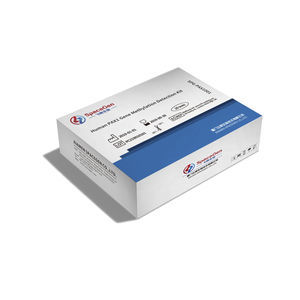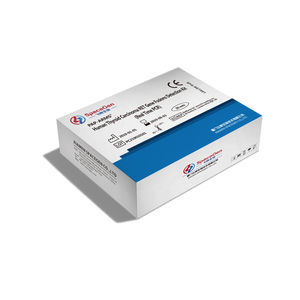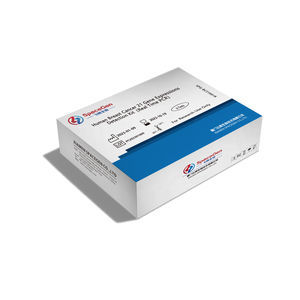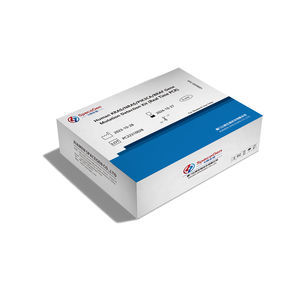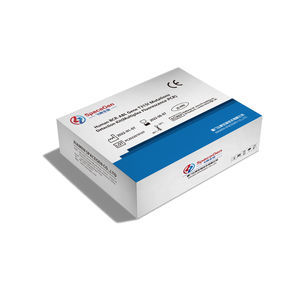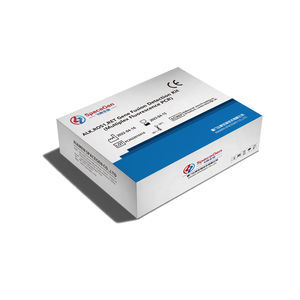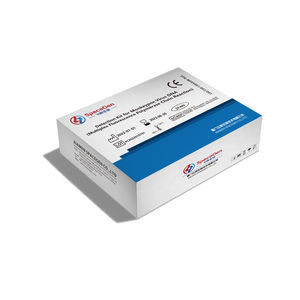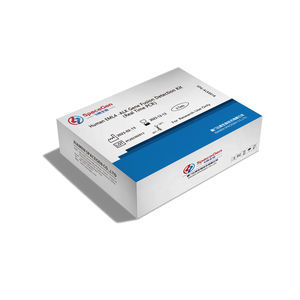

- Company
- Products
- Catalogs
- News & Trends
- Exhibitions
Colorectal cancer detection kit PC202301006oncologySEPT9clinical
Add to favorites
Compare this product
Characteristics
- Applications
- colorectal cancer
- Application field
- oncology
- Tested parameter
- SEPT9
- Sample type
- clinical, cell
- Analysis mode
- for real-time PCR
Description
Septin is a family of highly conserved cytoskeletal protein genes in evolution. It has GTPase activity. The Septin9 gene in the family is involved in various physiological activities such as cell division, cell migration and DNA repair.
Patients with colorectal cancer often have a certain degree of methylation in the promoter region of the Septin9 gene; this abnormal methylation will inhibit the tumor suppressor effect of the Septin9 gene, affect the occurrence and development of colorectal cancer.
The sensitivity of Septin9 for screening colorectal cancer was 82.22%, which was significantly higher than that of CEA; the specificity was 89.09%, which was higher than that of FOBT. Septin9 detection has high sensitivity and specificity in various indicators of colorectal detection, and has the advantages of non-invasive, convenient sampling, and stable method. It can be used as an important auxiliary method for clinical diagnosis of colorectal cancer.
DETECTION SIGNIFICANCE
1. Assist clinical early screening of colorectal cancer.
2. Assist clinicians to formulate intervention or control measures in time.
ELIGIBLE POPULATION
1. Patients with chronic enteritis and family colon polyps.
2. People over 50 years old.
FEATURES & ADVANTAGES
1. Accuracy and Reliability: Use pre-load PCR tube to effectively avoid cross-contamination.
2. Ease of Use: The process is standardized and the experimental procedure is simple.
3. Great Versatility: Validated on the most common qPCR machines with stable results.
DETECTION PROCESS
1、Nucleic Acid Extraction
2、Modification
4、Amplification
5、Data Analysis
Catalogs
No catalogs are available for this product.
See all of SPACEGEN‘s catalogsRelated Searches
- Assay kit
- Blood assay kit
- Immunoassay assay kit
- Plasma assay kit
- Infectious disease detection kit
- Analysis software
- Molecular test kit
- Respiratory infection test kit
- Whole blood detection kit
- Optical assay kit
- Clinical assay kit
- Fluorescence assay kit
- Viewer software
- Real-time PCR test kit
- Research assay kit
- Laboratory software
- Windows software
- Laboratory detection kit
- Cell assay kit
- Oncology test kit
*Prices are pre-tax. They exclude delivery charges and customs duties and do not include additional charges for installation or activation options. Prices are indicative only and may vary by country, with changes to the cost of raw materials and exchange rates.



